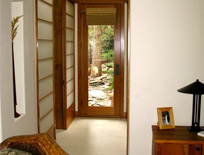Commentaries, Interviews & Profiles
The time has come for a major change in the pool and spa industry: Time to think differently about how we promote and market our products; time to recognize that our products bring more happiness and excitement to people than anything else they can buy; and especially time to
Although they’re occasionally the focus of media attention in North America, green roofs and their potential benefits are still relatively unknown quantities unless you happen to be a landscape architect or architect. In this commentary, Steven Peck and Damon van der Linde of Green Roofs for Healthy Cities aim to expand that base to include all watershapers – professionals, they say, who can play key roles in spreading the influence of these systems. Just think of it: There’s a design approach that improves energy efficiency, reduces the urban “heat island” effect and provides much-needed green space in places where opportunities for natural stress relief are
Not long ago, I was reminded in a big way of the importance of understanding the international nature of our industry. It was July, and my Genesis 3 partners Skip Phillips and David Tisherman and I were on the Gold Coast near Brisbane, Australia, presenting a program at the Splash! Conference – an experience that, once again, underscored the fact that ours is not just a North American business, but is instead a global industry in which people worldwide share
The true test of whether a watershape is well-conceived and well-built is what happens in the minds of the clients when they view the finished product. Not only should they appreciate the beauty of the work, they should also
An Interview by Eric Herman For more than 30 years, Dr. William N. Rowley — founder and principle of Rowley International, headquartered in Palos Verdes Estates, Calif. — has worked tirelessly to address the causes of suction entrapment incidents. He has personally investigated
An Interview by Eric Herman A watershaping industry veteran of more than 25 years, publicist Laurie Batter was cited as one of Aquatics International's "Power 25" in 2006; was twice named one of the Top 25 Industry People to Watch by Swimming Pool/Spa Age; was presented with
An Interview by Eric Herman Brian Van Bower's 'Aqua Culture' column has appeared in every WaterShapes issue since the magazine's inception and has become an inspirational touchstone for many along the way. Now in his 12th year of writing for WaterShapes, Brian has covered a vast array of topics, all with a unique
In this age of incredible cleverness, we are constantly devising more and better and faster ways to distract and entertain ourselves in an apparent collective effort to stay a step ahead of the vague fears that permeate our lives. As a designer and builder of watershapes, I recognize that many of my clients are seeking
If you’re like me, you look forward to the arrival of every issue of this magazine. As I see it, WaterShapes provides information that helps me become better at what I do. It’s also fun to read, informative and wonderfully affirming in that it shows our industry at its very best. It’s truly an indispensible resource, has been responsible for a good measure of the progress the industry has made in the past 12 years – and, unfortunately, it’s also struggling to make headway in a tough marketplace. Let me say this up front: I’m going to lay it on the line about






















Spread the Word!